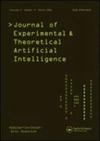A new hierarchical temporal memory based on recurrent learning unit
IF 1.7
4区 计算机科学
Q3 COMPUTER SCIENCE, ARTIFICIAL INTELLIGENCE
Journal of Experimental & Theoretical Artificial Intelligence
Pub Date : 2021-08-11
DOI:10.1080/0952813X.2021.1964614
引用次数: 1
Abstract
ABSTRACT Hierarchical temporal memory is an emerging machine learning technology that aims to model the structural and algorithmic properties of the neocortex. It is particularly suitable for learning and predicting sequential data. However, when dealing with long time series or complex sequences, the accuracy is relatively lower than desired. In this paper, a novel hierarchical temporal memory based on recurrent learning unit is proposed, where a feedback mechanism is involved into the model. The original cell is extended with a recurrent unit to capture long temporal dependencies of synaptic connections between neurons. The temporal pooler algorithm is then modified to adapt to the recurrent learning unit, and the supervised gradient information is combined with the Hebbian synaptogenesis learning rule in speeding up the training. The prototype of the proposed hierarchical temporal memory is implemented and extensive experiments are carried out on two public datasets under various settings. Experimental results show that the proposed model obtains an accuracy increase by up to 32% and a perplexity drop by up to 14% on sequence prediction and text generation tasks, respectively, which indicates the hierarchical temporal memory with recurrent feedback outperforms the original model on sequence learning.一种基于循环学习单元的分层时间记忆方法
分层时间记忆是一种新兴的机器学习技术,旨在模拟新皮层的结构和算法特性。它特别适合于学习和预测序列数据。然而,当处理长时间序列或复杂序列时,精度相对较低。本文提出了一种基于循环学习单元的分层时间记忆模型,并在模型中加入了反馈机制。原始细胞被扩展为一个循环单元,以捕获神经元之间突触连接的长时间依赖性。然后对时间池算法进行改进以适应循环学习单元,并将监督梯度信息与Hebbian突触发生学习规则相结合以加快训练速度。本文实现了分层时间记忆的原型,并在两个公共数据集上进行了不同设置下的大量实验。实验结果表明,该模型在序列预测和文本生成任务上的准确率分别提高了32%和14%,表明递归反馈的分层时间记忆在序列学习方面优于原模型。
本文章由计算机程序翻译,如有差异,请以英文原文为准。
求助全文
约1分钟内获得全文
求助全文
来源期刊
CiteScore
6.10
自引率
4.50%
发文量
89
审稿时长
>12 weeks
期刊介绍:
Journal of Experimental & Theoretical Artificial Intelligence (JETAI) is a world leading journal dedicated to publishing high quality, rigorously reviewed, original papers in artificial intelligence (AI) research.
The journal features work in all subfields of AI research and accepts both theoretical and applied research. Topics covered include, but are not limited to, the following:
• cognitive science
• games
• learning
• knowledge representation
• memory and neural system modelling
• perception
• problem-solving

 求助内容:
求助内容: 应助结果提醒方式:
应助结果提醒方式:


